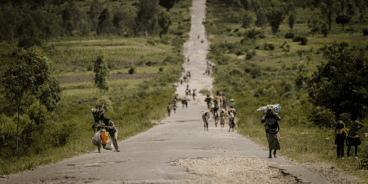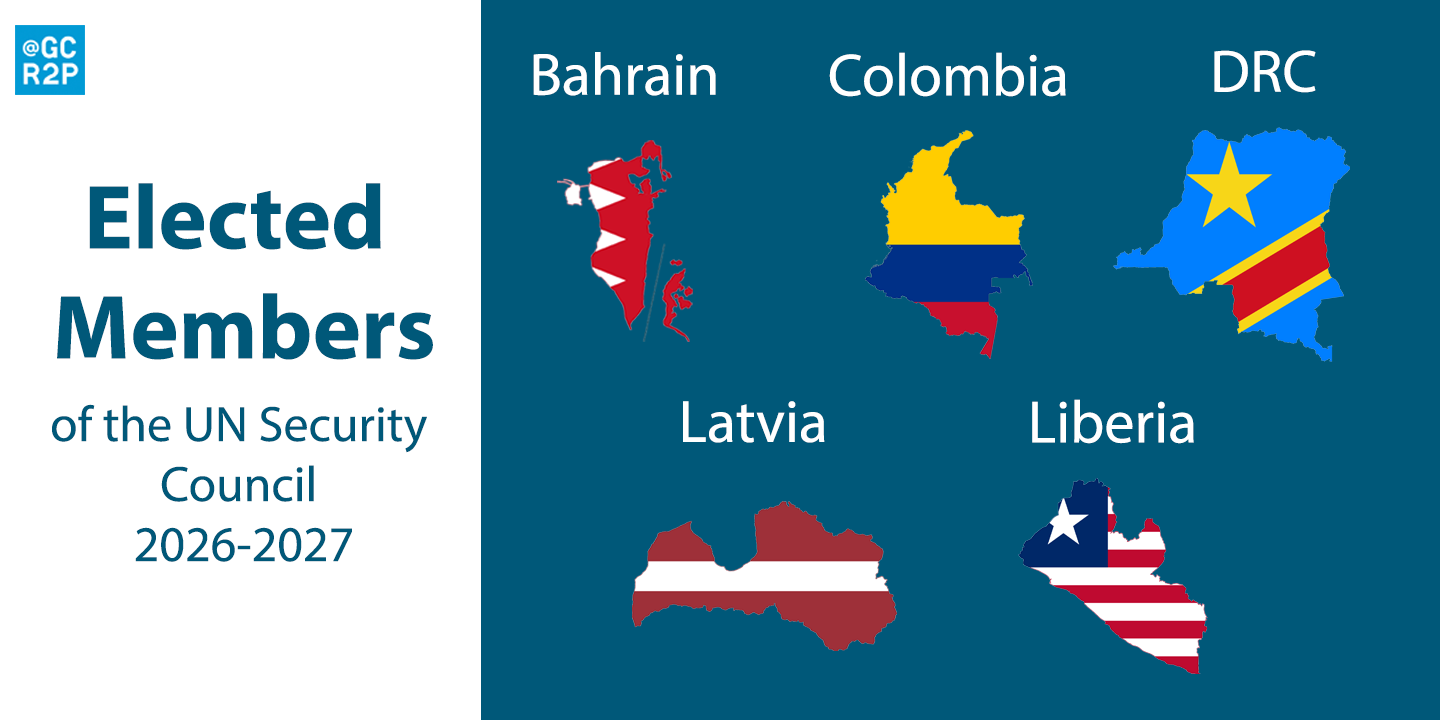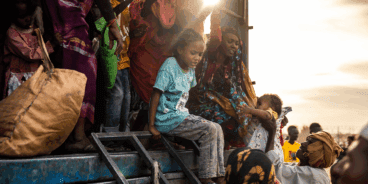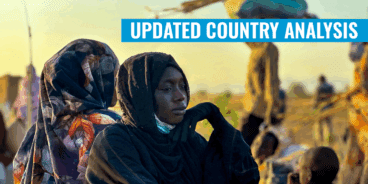

2026-2027 UN Security Council Elections and the Responsibility to Protect
Today, 3 June 2025, the UN General Assembly elected Bahrain, Colombia, Democratic Republic of Congo (DRC), Latvia and Liberia to the UN Security Council for the 2026-2027 term.
The Security Council bears the primary responsibility for the maintenance of international peace and security. Genocide, crimes against humanity and war crimes are among the most serious violations of international law and constitute a direct threat to international peace and security. The international community looks to the Security Council not only to respond to crises, but to prevent them. Upholding this responsibility is not optional – it is an obligation under the UN Charter and a moral imperative. This responsibility was further emphasized in the Pact for the Future, which called on states to “Support credible, timely and decisive action by the Security Council, in exercise of its primary responsibility for the maintenance of international peace and security, to prevent or end the commission of genocide, crimes against humanity or war crimes.”
Since 2005 the Security Council has adopted 97 resolutions and 17 presidential statements that refer to the Responsibility to Protect (R2P), including with regard to situations in the Central African Republic, South Sudan, Syria and eight other country situations, as well as several thematic issue areas. However, words must be matched by consistent action. Despite its mandate, all too often the Security Council has been unable or unwilling to take timely action on mass atrocity situations due to deep political divisions and/or the veto prerogative of the permanent members. This has had a debilitating effect on the Council’s ability to respond in a comprehensive and consistent manner to atrocities in Myanmar (Burma), Gaza, Sudan, Syria and elsewhere – making ineffective the very body charged with preventing and addressing mass atrocities.
This failure to act consistently and impartially not only undermines international law and the UN Charter but erodes trust among the wider UN membership and the public, including affected communities. To restore its credibility and fulfill its mandate, the Council must overcome double standards and apply a consistent, principled approach to all atrocity situations, ensuring that responses are guided by the gravity of the situation rather than political considerations.
It is therefore more important than ever for Council members to work cooperatively and creatively to ensure that the international community takes timely, decisive, practical action to prevent atrocities and protect vulnerable populations wherever and whenever they are threatened. The composition of the new Council offers opportunities to advance this goal, particularly as several members have already demonstrated strong commitments to atrocity prevention. With their election, 7 of the 15 members of the Council in 2026 will be “Friends of the R2P” – having appointed an R2P Focal Point and/or joined the Group of Friends of R2P in New York and Geneva.
All newly elected members of the Security Council have demonstrated some level of commitment to the core instruments of international human rights and humanitarian law relevant to R2P and the prevention of mass atrocities. These include the Convention on the Prevention and Punishment of the Crime of Genocide, the 1949 Geneva Conventions and Additional Protocols I and II, Rome Statute of the International Criminal Court (ICC) and the Arms Trade Treaty – with each member having either signed, ratified or acceded to these key instruments. In addition to treaty engagement, all five newly elected members are signatories to the ACT Code of Conduct, while Colombia, DRC and Latvia also support the France/Mexico Veto Restraint Declaration, reinforcing their commitment to atrocity prevention at the multilateral level.
Following these ‘clean slate’ elections, it is imperative that all newly elected members uphold the principles enshrined in the UN Charter, including by prioritizing the protection of civilians, ensuring accountability for perpetrators of atrocities and supporting efforts to address the root causes of conflict. Notably, as the DRC prepares to assume its seat on the Security Council, it must reaffirm this core responsibility. For nearly three decades, several UN investigative mechanisms, experts and entities have documented violations and abuses by Congolese government forces, police and affiliated armed groups, particularly in the conflict-affected eastern regions, that could amount to war crimes and crimes against humanity.
The Global Centre for the Responsibility to Protect encourages all newly elected and existing Security Council members to utilize the broad array of tools for prevention and response:
Early Warning, Monitoring and Preventive Measures
-
-
- Reinstate monthly “horizon scanning briefings” within the working methods of the Council to proactively identify emerging risks and trends related to atrocity crimes.
- Encourage closer coordination between the UN Secretariat, regional and sub-regional organizations, and early warning mechanisms to ensure timely and context-specific analysis of atrocity risks. In this context, request briefings from the UN Secretary-General’s Special Advisers on the Prevention of Genocide and the Responsibility to Protect, as well as the Office of the UN High Commissioner for Human Rights and relevant Special Rapporteurs, Human Rights Council-mandated investigative mechanisms, civil society representatives and affected communities, on situations where populations are at risk of mass atrocities.
- Raise awareness and mobilize timely responses to crises, including through convening “Arria-formula meetings” or raising country situations that are not on the Council’s formal agenda under “Any Other Business,” and coordinating Security Council visiting missions to countries where mass atrocity risks are evident.
- Mandate atrocity risk assessments in all relevant country-specific resolutions and peace operation mandates. Support the inclusion of gender- and age-specific indicators in early warning and risk assessments to ensure more targeted and effective preventive strategies.
- Ensure that early warning analysis informs decision-making by embedding it into the work of sanctions committees, working groups and other subsidiary bodies of the Council.
-
Protective Measures
-
-
- Initiate or strengthen UN sanctions regimes, including by ensuring they are explicitly targeted at individuals and entities responsible for atrocity crimes.
- Ensure that arms embargoes are enforced and adapted to prevent the flow of weapons to actors credibly implicated in mass atrocity crimes.
- Prioritize and support the deployment of human rights and civilian protection components, including civilian protection advisers, gender advisers and child protection advisers, in all peacekeeping and special political missions and ensure their adequate resourcing and training.
- Cooperate with regional organizations or neighboring regional powers to effectively coordinate and mobilize resources and response to crisis situations.
-
Accountability, Transparency and Leadership on Atrocity Situations
-
-
- Adhere to the ACT Code of Conduct by which Council members commit to take timely and decisive action to protect civilians and not vote against any credible resolution aimed at preventing mass atrocities.
- Support the France/Mexico initiative on veto restraint in mass atrocity situations, and refrain from using the veto where populations face the risk of genocide, war crimes, ethnic cleansing or crimes against humanity.
- Ensure transparency by encouraging open sessions of the Council when discussing crises where populations are at risk of atrocities.
- Issue press statements on atrocity situations, including on countries not on the Council’s formal agenda.
- Host thematic meetings during your presidency on topics related to the prevention of mass atrocities, international justice and civilian protection.
- Support the ICC and other international justice mechanisms, refer situations to the ICC and ensure all perpetrators of mass atrocities are held to account, regardless of nationality, position or affiliation.
-
Normative Commitment
-
-
- Ratify or accede to the Convention on the Prevention and Punishment of the Crime of Genocide, other core international legal instruments relevant to atrocity prevention and align national laws with international obligations.
- Engage actively in the process to develop a treaty on crimes against humanity, including through participation in negotiations, with a view to strengthening accountability and closing existing gaps in international criminal law.
- Reaffirm support for R2P through formal statements and practical measures, including budgetary support to the UN Office on Genocide Prevention and the Responsibility to Protect.
-
Related Content


Atrocity Alert No. 459: Sudan, Ukraine and Conflict-Related Food Insecurity
